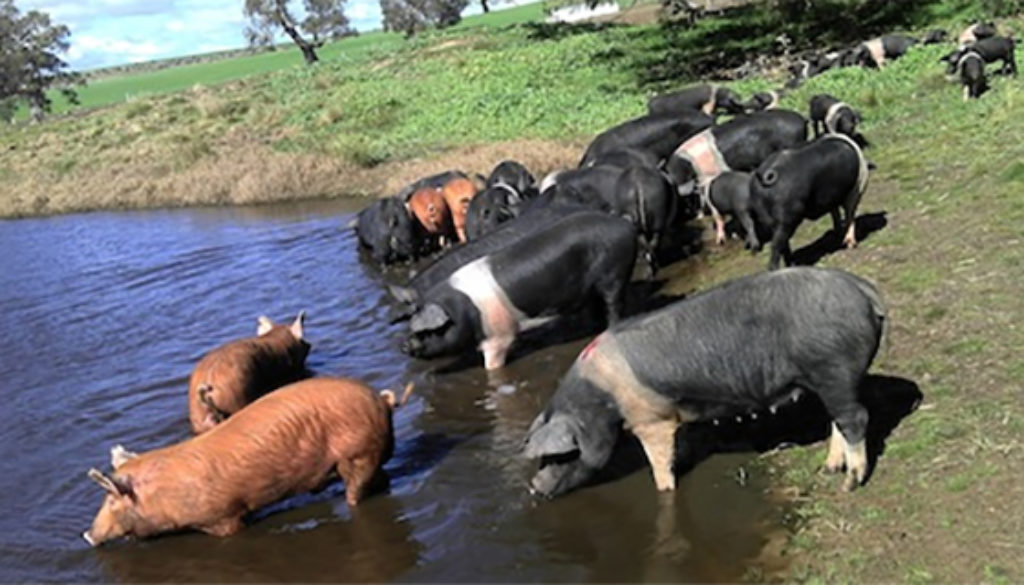Protecting Clean Water: A Dirty Job, But Someone’s Gotta Do It
By Kristen Wolf, Owner of Windhaven Farms
Raising animals can be a dirty job, in more ways than one.
Windhaven Farms is a local meat distribution company. We sell beef, pork chicken and rabbits to restaurants in the Kansas City area, and each animal is sourced from a specific farm. We focus on the animals as much as possible and are always trying to improve our farming practices – that includes raising chickens and hogs out on the pasture, using locally-produced feed.
There’s one other thing that we keep worrying about, and that’s water. Obviously, the animals we raise need clean water to survive, and it helps when we process the meat and make sure it’s safe for consumption. We need water. So do the farmers who need it to grow crops, and so do their families, and so do the people who buy and eat the meat we raise. We all need it.
But there’s another reason it’s important. I said raising animals can be a dirty job, and when you’re talking about all the animals our farms work with…well, let’s just say nature ends up calling a lot. The problem is, what do you do with all of that waste? If it ends up in nearby waterways, that can be a serious problem for everyone else who relies on them.
The bottom line is, water is a resource we need to protect. That’s why the EPA’s proposed Waters of the US rules are so important, and why business leaders should be speaking out in support of protecting clean water.

Because we let most of the animals we raise roam about freely, we have less of a concern with waste than some others might — it gets dispersed a lot more, lessening the risk that nearby waterways will get contaminated. To reduce that risk even further, we’re planning to start collecting and composting animal waste.
These are important individual steps, but there still needs to be a minimal standard to make sure that others can’t simply pass their costs on to others who try to do the right thing. If the system accounted for those outside costs, some companies might have to be more careful about how and where they dump waste; yes, that might mean they’d have to spend a little more, but in the long run, we’d all be able to use our resources for much longer than we’ll be able to with the current system. We shouldn’t be risking resources that all businesses rely on just so a few companies can save a few bucks.
Still, there’s been a lot of talk about how these rules are some major economic burden. But that’s a short-sighted view – it’ll be worse for businesses in the long run if we don’t protect watersheds right now. Just look at aquifers being drained in Western Kansas, or the drought in California. Water is one of those things you can forget about entirely, until it’s not there anymore.
Besides, even small business owners don’t agree that protecting clean water is bad for the economy — 71 percent said the opposite in ASBC polling last year, and 80 percent said they supported the EPA’s proposal. If this sort of thing was bad for business, why would so many of them want to see it happen?
Just because some folks, like our farms, try to do the right thing, that’s no reason not to support these rules. Otherwise, those who try to do right will still have to deal with those who don’t. Hopefully, members of Congress who’ve been talking about blocking these rules will recognize that American businesses need clean water.

